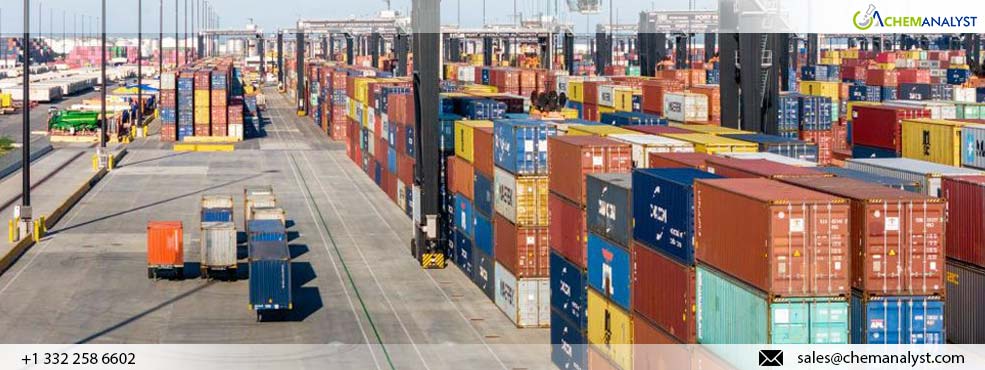Welcome To ChemAnalyst

The U.S. faces significant supply chain disruptions as the International Longshoremen’s Association (ILA) began a strike on October 1, halting operations at major ports along the East Coast and Gulf Coast. The strike comes after negotiations with the United States Maritime Alliance (USMX) failed to reach a resolution over wage increases and other contractual terms. The ILA's walkout is poised to affect 36 vital ports from Maine to Texas, threatening U.S. trade and economic stability.
The strike commenced shortly after the expiration of the ILA’s six-year master contract with USMX at midnight on Tuesday, bringing container operations at numerous critical ports to a standstill. While both parties exchanged counteroffers 24 hours before the strike began, the ILA rejected the wage package proposed by USMX, deeming it inadequate.
Impact on U.S. Trade and Industry
The ongoing strike has raised concerns across several industries, particularly those dependent on these ports for importing and exporting essential goods. Major container hubs such as the Port of New York and New Jersey, the Port of Virginia, and Georgia Ports have suspended operations. The ports affected account for a significant share of the nation’s import and export trade, handling billions of dollars' worth of consumer goods, automotive parts, and agricultural products.
Retailers, already preparing for the holiday season, are facing potential delays and increased shipping costs, while food and agriculture industries brace for disruptions in the flow of perishable goods such as bananas, soybeans, and chilled meat. The East and Gulf Coast ports are crucial for the U.S. food supply chain, and a prolonged strike could lead to shortages and increased prices for consumers.
Port Shutdowns and Operational Updates
As of 1st October afternoon, several major East Coast and Gulf Coast ports reported full or partial closures due to the strike:
Port Authority of New York and New Jersey: All terminals utilizing ILA labor for container operations have ceased activities, including Port Newark Container Terminal, APM Terminals, and Maher Terminals. The port has announced the closure of all terminals, depots, and rail yards related to containers and automobiles.
Port Houston: Both Bayport and Barbours Cut container terminals are closed, significantly affecting trade flow through Texas.
Port of Virginia: The Norfolk International Terminals, Virginia International Gateway, and multiple other facilities remain closed until further notice, severely impacting cargo operations.
Port of Baltimore: The strike has affected six public marine terminals managed by the Maryland Port Administration.
South Carolina Ports Authority: All marine terminals are closed until further notice, with recovery plans pending the duration of the interruption.
Other ports, including the Port of Boston, Port of Miami, Port Tampa Bay, and the Port of Mobile, have also reported varying levels of disruption. At Port Everglades, only a few terminals were impacted, while petroleum and other cargo continue to move. In North Carolina, the Port of Wilmington’s container operations remain shut down, though other general cargo operations are still functioning.
Wage Dispute and Labor Negotiations
Wages remain a primary sticking point in the labor dispute. The ILA, which represents over 47,000 dockworkers, is demanding a $5-per-hour annual raise for each year of a new six-year contract, whereas the USMX’s counteroffer was only $2.50 per hour. ILA President Harold J. Daggett has rejected management’s proposal, citing it as “insulting,” given the union’s critical role in generating substantial profits for port operators.
“The work our longshore workers perform is critical to the nation’s economy, and my ILA members are not going to accept these insulting offers,” Daggett reiterated in a statement.
Economic and Political Implications
The strike is likely to have far-reaching implications for the U.S. economy, especially in light of ongoing supply chain challenges and inflationary pressures. The affected ports handle a significant volume of U.S. imports, including essential goods and raw materials. The timing of the strike, coinciding with the peak holiday season, is expected to exacerbate supply shortages, leading to higher costs for businesses and consumers.
Next Steps and Outlook
With the ILA announcing that the strike will continue “round the clock, 24/7, for as long as it takes,” the prospect of a quick resolution seems uncertain. Both parties are expected to return to the negotiating table in the coming days, but without an agreement in sight, the economic fallout could be substantial.
ChemAnalyst anticipates a prolonged strike could disrupt the U.S. supply chain for weeks, causing ripple effects across multiple sectors, including retail, agriculture, and manufacturing. As both sides remain entrenched in their positions, businesses and consumers alike brace for continued instability in U.S. trade and logistics.
The industry will continue to monitor the situation closely, hoping for a breakthrough that can avert further disruptions and restore stability to one of the nation’s most vital economic arteries.
We use cookies to deliver the best possible experience on our website. To learn more, visit our Privacy Policy. By continuing to use this site or by closing this box, you consent to our use of cookies. More info.
